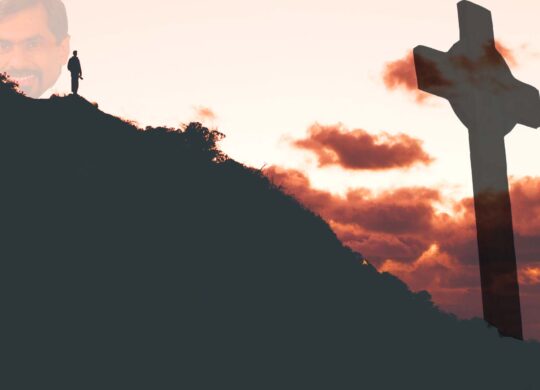Alone?

They say that “loneliness” is the pain of being along. And the glory of being alone is “solitude.”
Over the past few years, for most us—and not just for some who have chosen singleness and celibacy as a lifestyle—being alone has become quite a reality. Sheltering in place. Socially distancing. Exposure and infection quarantining. Etc.
Whether this becomes loneliness or solitude is a different question.
The last few years have also brought out significant research into the concept of being alone, its role, its benefits, even its definition.
Robert Coplan, professor of psychology at Carelton University in Ottawa, and co-author of The Handbook of Solitude, confesses:
There isn’t even a really agreed-upon definition about what solitude means.”
Perhaps it is, almost always, subjective—whether the person in question feels alone. If you feel alone, you probably are.
Coplan:
When we feel lonely, it’s because our desire for company exceeds our ability to find it. And this process can work in reverse as well: If our desire for solitude exceeds our ability to find it, we can also struggle with feelings of discomfort.”
Being alone isn’t always “solitude”; for some (many?) it can be “loneliness.”
Said Milton, in Paradise Lost (1667):
The mind is its own place, and in it self
Can make a Heav’n of Hell, a Hell of Heav’n.
One study done a few years ago showed that participants preferred giving themselves an electric shock to being alone thinking for 15 minutes! (BTW: 67% of men, but only 25% of the women in the study. The authors said that difference was “probably due to the tendency for men to be higher in sensation seeking”!)
But Paul Salmon, professor of psychology at the University of Louisville, wants us to think of being alone as a “high-intensity interval workout” that can be brief and scattered throughout the day.
Maybe even go into a room if you have a space that you can go to where you can be alone for a little bit. And also, to be clear, this is not isolating yourself, but simply giving yourself a time to kind of recharge the batteries.”
In fact, he says that you don’t even have to be physically alone to experience solitude.
Just close your eyes, turn inward for a bit and pay attention to what’s going on in your body and what thoughts are going through your brain.”
Of all the spiritual disciplines of abstinence (that involve giving up something), solitude (giving up company) is generally the most fundamental and it must be returned to again and again as that life develops. Combined with another discipline of abstinence, silence (giving up noise and noisemaking), solitude can really focus one upon the divine.
“And Yahweh is in His holy temple.
Let all the earth be silent before Him.”
Habakkuk 2:20
In stark aloneness it is possible to be still and know that Yahweh is God, to set the Lord before our minds with sufficient intensity and duration that we stay centered upon him—hearts fixed and established in trust.
“The steadfast of mind You will keep in perfect peace,
Because he trusts in You.”
Isaiah 26:3
Christ practiced solitude often.
After He had sent the crowds away, He went up on the mountain by Himself to pray;
… He was there alone.
Matthew 14:23
And He encouraged His disciples to do it.
And He said to them,
“Come away by yourselves to a desert place
and rest a while.”
Mark 6:31
2022 is upon us. Take time to be alone and enjoy … solitude!
SOURCES:
NPR; Science











 Abe Kuruvilla is the Carl E. Bates Professor of Christian Preaching at The Southern Baptist Theological Seminary (Louisville, KY), and a dermatologist in private practice. His passion is to explore, explain, and exemplify preaching.
Abe Kuruvilla is the Carl E. Bates Professor of Christian Preaching at The Southern Baptist Theological Seminary (Louisville, KY), and a dermatologist in private practice. His passion is to explore, explain, and exemplify preaching.
4 Comments
Thank you, Dr. Abe!
This resonates powerfully with me. Embracing solitude!!
Thanks, Sherly.
Thank u sir,,may the lord help me to practice solitude
God bless you, Sumith.